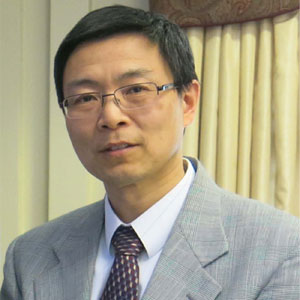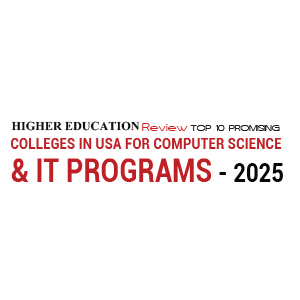
Fitchburg State University: Providing High-Quality Industry-Aligned Computer Science & It Education
By Brady Chen, Professor & Graduate Program Chair
Computer science and IT industries are undergoing a rapid transformation, with new emerging technologies such as artificial intelligence, cybersecurity, and data science. Higher education institutions must adapt curricula to meet industry demands while fostering practical skills through hands-on training and real-world exposure. As tuition costs increase, it becomes more difficult to obtain a high-quality education. Industry-academia relationships are also important in matching programs with market needs and improving the employability of graduates. The need for easily accessible programs that prepare students to compete in the job market and supported by the fact that the U.S. Bureau of Labor Statistics projects a 15 percent growth in the Computer and IT jobs market between 2021 and 2031.
Fitchburg State University is addressing these challenges by providing industry-aligned computer science and IT education. Founded in 1894 in Fitchburg, Massachusetts, the university has evolved from a teacher-training school to a full-fledged public university with an enrollment of approximately 6,100 students. The department hosts the Computer Science program of the school, which dates back to the 1970s and contains Bachelor of Science degrees in Computer Science and Computer Information Systems, both accredited by the ABET Computing Accreditation Commission, as well as a Master of Science in Computer Science offered both on campus and online with tracks in Data Science and Cybersecurity.
Innovative Curriculum
To prepare students for industry demands, Fitchburg State University uses the latest technologies in its programs to equip students with the requirements of the industries. It has a curriculum that consists of core courses that offer the foundational skills and a variety of electives such as data science, cybersecurity, and artificial intelligence. The introduction of Data Science and Cybersecurity concentrations reflects responsiveness to market needs, with courses such as Data Mining, Machine Learning, and Ethical Hacking equipping students for specialized roles.
Bridging Academia & Industry
The university enhances program quality by embedding real-world experiences into its offerings. The students complete capstone projects across a variety of fields, such as healthcare and finance and create team-based applications that reflect real-world challenges. It also offers hands-on experience in internships, which are arranged through connections with high-tech firms located in the Boston region.
International students benefit from Curricular Practical Training (CPT) opportunities, often paid, enabling them to gain industry exposure while studying. These initiatives bridge the gap between academia and industry, ensuring graduates are job-ready. The university’s proximity to Boston, approximately 40 miles west, provides access to a vibrant tech ecosystem, amplifying these opportunities.
Fitchburg State University enhances program quality by embedding real-world experiences into its offerings
The quality of education at Fitchburg State University is underpinned by a dedicated faculty and modern infrastructure. Faculty members, including adjuncts from industry, apply real-world knowledge in classrooms, and some teach courses depending on their research bringing practical insights. “We are upgrading one lab with NVIDIA GPUs to support courses similar to parallel computing and AI, and our IT team offers seven-day support for any student computer issues”, says Brady Chen, Professor & Graduate Program Chair, Fitchburg State University. This infrastructure promotes experiential learning, which is important in learning advanced IT concepts.
Recognizing financial barriers, Fitchburg State University offers limited but impactful graduate assistantships, providing tuition waivers and stipends based on hours worked. Such opportunities, in areas such as IT and campus services, facilitate the success of students. The university also promotes industry-academia partnerships in the Program Advisory Committee. “We invite industry professionals to share insights on the technologies and skills they prioritize. We also seek their feedback, especially since many of these companies hire our students, allowing us to refine our programs based on real-world needs”, says Brady Chen.
Pathway to the Future
Looking ahead, Fitchburg State University wants to continue being a provider of affordable and high-quality education in the state of Massachusetts university system. The Computer Science Department will also keep on revising its curriculum to incorporate advancements in AI, cybersecurity, and other high-demand fields. Through Industry feedback, increasing internship opportunities, and infrastructure investment, the university seeks to improve graduate outcomes.
Innovations such as new concentrations and flexible course offerings will ensure responsiveness to global tech trends. Fitchburg State University's commitment to accessibility and excellence positions it as a vital contributor to the U.S. computer science and IT education landscape, preparing students to thrive in a dynamic industry.


